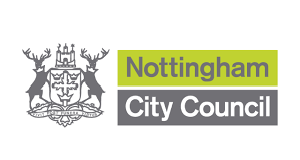New to Fostering

Being new to fostering is an exciting and challenging journey that involves opening your heart and home to a child in need. Fostering is a unique and rewarding experience that can make a profound impact on a child’s life. If you’re considering becoming a foster carer and are new to the process, there are several important aspects to understand and prepare for.
- Understanding the Fostering Process: Take the time to research and understand the fostering process in your country or region. Familiarise yourself with the requirements, qualifications, and expectations set by the fostering agency or local authority. This may involve attending information sessions, reading relevant literature, or speaking to experienced foster carers.
- Self-Assessment and Preparation: Reflect on your motivations, strengths, and limitations as a foster carer. Consider the types of children you feel most equipped to care for and the age groups that align with your preferences. It’s important to be honest with yourself and the fostering agency about what you can offer as a foster carer.
- Training and Support: Engage in the training and support programs provided by the fostering agency. These programs are designed to equip you with the necessary knowledge and skills to provide a safe and nurturing environment for the child in your care. The training may cover topics such as child development, trauma-informed care, communication techniques, and understanding the foster care system.
- Assessing Your Home: Ensure that your home meets the safety and space requirements set by the fostering agency. This may involve home visits and assessments to determine whether your living environment is suitable for a foster child. Make any necessary adjustments to create a welcoming and child-friendly space.
- Understanding the Needs of Foster Children: Recognise that children in foster care may have experienced trauma, neglect, or abuse. They may have emotional and behavioural challenges that require patience, understanding, and support. Educate yourself on trauma-informed care approaches and techniques that can help you respond effectively to the child’s needs.
- Building a Support Network: Foster care can be emotionally demanding, so it’s crucial to build a strong support network. Connect with other foster carers, join support groups or forums, and maintain open communication with your fostering agency. Having a support system in place can provide guidance, encouragement, and a sense of belonging.
- Effective Communication: Effective communication is vital when fostering a child. Foster children may have complex emotions and may struggle to express themselves. Create a safe and open environment where the child feels comfortable sharing their thoughts and concerns. Listen actively, validate their experiences, and provide reassurance and empathy.
- Patience and Flexibility: Foster care is a dynamic and ever-changing experience. It requires patience, adaptability, and a willingness to learn and grow. Be prepared for the unexpected and understand that each child will have unique needs and circumstances. Flexibility and resilience are key traits for foster carers.
- Advocacy and Collaboration: As a foster carer, you play an important role in advocating for the child’s needs. Collaborate with social workers, educators, therapists, and other professionals involved in the child’s life. Attend meetings and appointments, share information, and actively participate in the child’s care plan.
- Celebrating Achievements: Celebrate the small and big achievements of the child in your care. Fostering provides an opportunity to make a positive difference in a child’s life and acknowledging their progress and successes can boost their self-esteem and sense of belonging.
Remember, being new to fostering is a learning experience. It’s okay to ask for help, seek guidance, and make mistakes along the way. Fostering is a journey of growth and transformation, both for the child and for you as a foster carer. With dedication, compassion, and a willingness to learn, you can make
Work with




